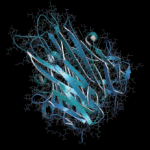NEW YORK (Reuters Health)—Using tumor necrosis factor (TNF) inhibitors in children is not significantly associated with cancer risk, according to a new study.
“TNF inhibitors are remarkably effective for the treatment of many autoimmune conditions, but physicians worry that they cause cancer,” Dr. Timothy Beukelman from the University of Alabama in Birmingham told Reuters Health by email. “Our findings, along with similar outcomes in adults using TNF inhibitors, should greatly diminish worries that these medications cause cancer.”
For their study, online February 9 in Annals of the Rheumatic Diseases, Dr. Beukelman and colleagues conducted a retrospective cohort study. They included children with juvenile idiopathic arthritis, pediatric inflammatory bowel disease and pediatric plaque psoriasis.
The researchers searched U.S. administrative claims data from the Medicaid Analytic eXtra files and a database of employer-sponsored commercial health insurance to identify cohorts of children treated for the three conditions between 2000 and 2014.
The study included nearly 15,600 children who were exposed to TNF inhibitors and more than 73,800 who were not. There were 30,703 and 121,801 person-years of follow-up, respectively. Malignancy was defined by diagnosis codes with evidence of cancer treatment.
The researchers identified 15 malignancies in children who took TNF inhibitors (standardized incidence ratio compared to expected numbers from cancer surveillance data, 2.9; 95% confidence interval, 1.6 to 4.9) and 42 in those who did not (SIR, 2.1; 95% CI, 1.5 to 2.9).
The adjusted hazard ratio for incident cancer was 1.58 (95% CI, 0.88 to 2.85) for use of TNF inhibitors versus no use.
However, the use of TNF inhibitors and thiopurine to treat pediatric plaque psoriasis was associated with a higher standardized incidence ratio for cancer (SIR, 6.0; 95% CI, 1.2 to 17.5) than was the use of TNF inhibitors alone (SIR, 2.5; 95% CI 0.7 to 6.4).
Dr. Beukelman noted that the issue is difficult to study, as childhood malignancies are very rare and the conditions treated with TNF inhibitors are also uncommon in children. He said the study’s large sample size lends credence to the findings, although the follow-up was relatively short.
“The use of TNF inhibitors should not be restricted due to concerns about malignancy,” he said, “but further studies on the long-term risks of their use in children are needed.”
The study had no commercial funding. The researchers reported various ties to makers of TNF inhibitors.
Reference
- Beukelman T, Xie F, Chen L, et al. Risk of malignancy associated with paediatric use of tumour necrosis factor inhibitors. Annals of Rheumatic Diseases. 2018 Feb 9. [Epub ahead of print]
